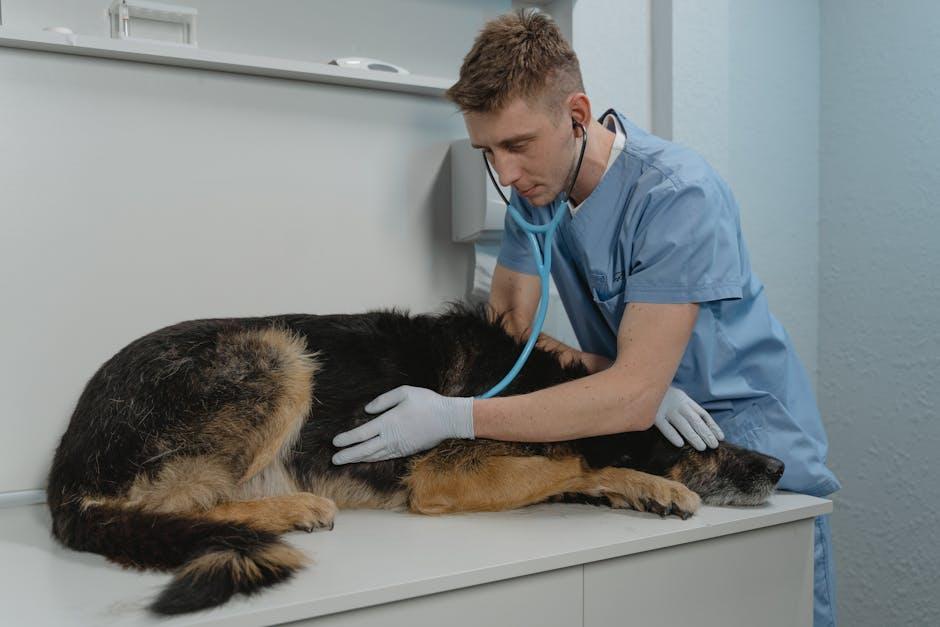In a world where our furry, feathered, and scaly companions bring boundless joy and unconditional love, ensuring their well-being becomes a cherished responsibility. Just like us, pets can face the unseen threat of infectious diseases, but with a sprinkle of knowledge and a dash of diligence, we can create a safe haven for our beloved animals. Welcome to a journey where we unravel essential tips to shield your pets from these invisible adversaries, blending warmth and wisdom to keep tails wagging and spirits soaring. Whether you’re a seasoned pet parent or a new guardian, these insights will help you nurture a healthy, happy environment for your four-legged (or two-winged) family members.
Understanding the Risks: Common Pet Diseases and How They Spread
Pets, much like humans, are susceptible to a variety of infectious diseases. Understanding these risks is crucial for ensuring their well-being. Many diseases spread through direct contact with infected animals or through environmental exposure. Feline Leukemia Virus (FeLV), for instance, can be transmitted via saliva and nasal secretions, while Canine Parvovirus is known for its resilience in contaminated environments, posing a significant threat to unvaccinated dogs.
- Rabies: Spread through bites from infected animals, it is a serious threat to both pets and humans.
- Heartworm: Transmitted by mosquitoes, this can lead to severe lung disease and heart failure in pets.
- Ringworm: A fungal infection that spreads through direct contact or shared items like bedding.
By being aware of these common diseases and their transmission methods, pet owners can take proactive steps to protect their furry companions. Regular veterinary check-ups and vaccinations are key strategies in disease prevention, along with maintaining a clean and safe living environment.
Building a Shield: Strengthening Your Pet’s Immune System Naturally
Enhancing your pet’s immune defenses can be both rewarding and fun. Start by integrating a diet rich in antioxidants and essential nutrients. Fresh fruits and vegetables like blueberries, carrots, and spinach can be excellent additions. Don’t forget to add high-quality proteins, as they are crucial for maintaining robust health. Consider incorporating natural supplements such as probiotics and omega-3 fatty acids, which support gut health and reduce inflammation.
- Exercise Regularly: Engage your pet in daily activities to boost their immune system.
- Hydration is Key: Ensure a constant supply of fresh water to keep their bodies hydrated and functioning optimally.
- Reduce Stress: Provide a calm environment with plenty of love and attention to keep stress levels low.
Remember, a happy pet is a healthy pet. Regular vet check-ups and a nurturing environment go a long way in building a natural shield against infections.

Clean Spaces, Happy Faces: Maintaining a Safe Environment for Your Pet
Keeping your pet’s environment clean is crucial for their health and happiness. A tidy space minimizes the risk of infectious diseases and enhances your pet’s overall well-being. Here are some essential tips to maintain a safe and healthy habitat for your furry friends:
- Regular Cleaning: Ensure that your pet’s living area is cleaned regularly. This includes washing bedding, toys, and feeding bowls. Use pet-safe disinfectants to eliminate harmful bacteria.
- Proper Ventilation: Make sure your pet’s space is well-ventilated. Fresh air helps reduce the concentration of airborne pathogens and keeps the environment comfortable.
- Routine Check-ups: Schedule regular vet visits for your pet. Early detection of any health issues can prevent the spread of infections.
- Personal Hygiene: Wash your hands before and after handling your pet to avoid transferring germs.
- Limit Exposure: Avoid contact with unknown animals and keep your pet’s vaccinations up to date to prevent contagious diseases.
By creating a clean and secure environment, you ensure that your pet remains joyful and healthy, allowing their personality to shine through every day.

Vet Visits and Vaccines: Your Pet’s Health Check Essentials
Regular vet visits are crucial for maintaining your pet’s health. These appointments are not just for emergencies; they are essential for early detection of potential issues and ensuring your pet’s vaccinations are up-to-date. Vaccinations protect your furry friend from various infectious diseases, providing a shield against ailments that could otherwise have serious consequences. Your vet will guide you on the necessary vaccines based on your pet’s age, lifestyle, and health status.
Here are some tips to make the most of your vet visits:
- Schedule Regular Check-Ups: Consistency is key. Keep a regular appointment schedule to monitor your pet’s health.
- Keep Vaccination Records: Maintain an organized record of all vaccinations and treatments. This helps in ensuring timely updates.
- Discuss Lifestyle Changes: Inform your vet about any changes in your pet’s diet or activity levels for tailored health advice.
- Prepare Questions: Before your visit, list any concerns or questions you might have about your pet’s behavior or health.


































